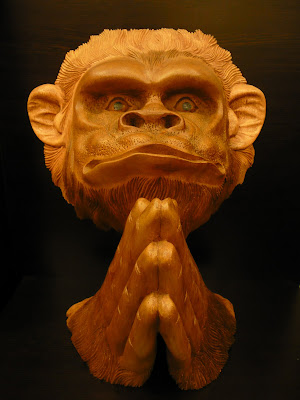
Last weekend, I was standing at the edge of the crater (火山口 huǒshānkǒu) staring into the mouth of the majestic Mt. Bromo (婆罗摩火山 póluómó huǒshān); the most famous volcano in Indonesia (印尼 yìnní) that you can still visit after Krakatoa (喀拉喀托 kālākātuō) sank into the sea in 1883 after a disastrous volcanic eruption 火山爆发 huǒshān bàofā. Mt. Bromo is about 200km from the city of Surabaya 泗水 sìshuǐ. I wonder why Surabaya was not translated by sound but instead acquire this rather unflattering name which in Chinese means mucous water.

White plumes of cloud continuously poured forth from the fissures in the center. As I stood at the edge of the barren volcano, I recalled a French proverb that said “grass will not grow on a volcano” but could not think of a Chinese proverb or found one later. Maybe the Chinese are not that acquainted with a volcano? But they have plenty of proverbs for fire such as this one - 真金不怕火炼 zhēnjīn bù pà huǒ liàn which said “true gold is not afraid of fire” and means that a person of character can withstand severe trials.

We have to cross a sea of sand in 4 wheel drives to reach Mt. Bromo and the inactive Mt. Batok nearby where grass does grow on it. Sometimes, one thinks grass is smarter than man. There is a Hindu temple at the base. You can reach it and the 240 steps that will take you up Mt. Bromo by foot or on horseback. They still make sacrifices to the Volcano God but flood and fire has no mercy 水火无情 shuǐhuǒ-wúqíng. The last time Mt. Bromo was dangerous enough to evacuate the people living nearby was only in 2004 while Mt. Semeru erupts every 20 minutes.

Mt. Bromo and Mt. Batok are actually within the massive collapsed crater Tengger caldera (diameter approximately 10 km!). And the the Laut Pasir (Sea of Sand) are fine volcanic sand (火山灰 huǒshānhuī). As I reluctantly leave this place, I was reminded of another French proverb “don’t dance on a volcano” but still cannot find anything witty in Chinese. But there are no volcanoes in France, are there? Languages are sometimes as strange as volcanoes.
.
(Incidentally, one of my traveling companion is French. Tomorrow, I’ll be going to Lebanon 黎巴嫩 Líbānèn – see you when I get back).








No comments:
Post a Comment